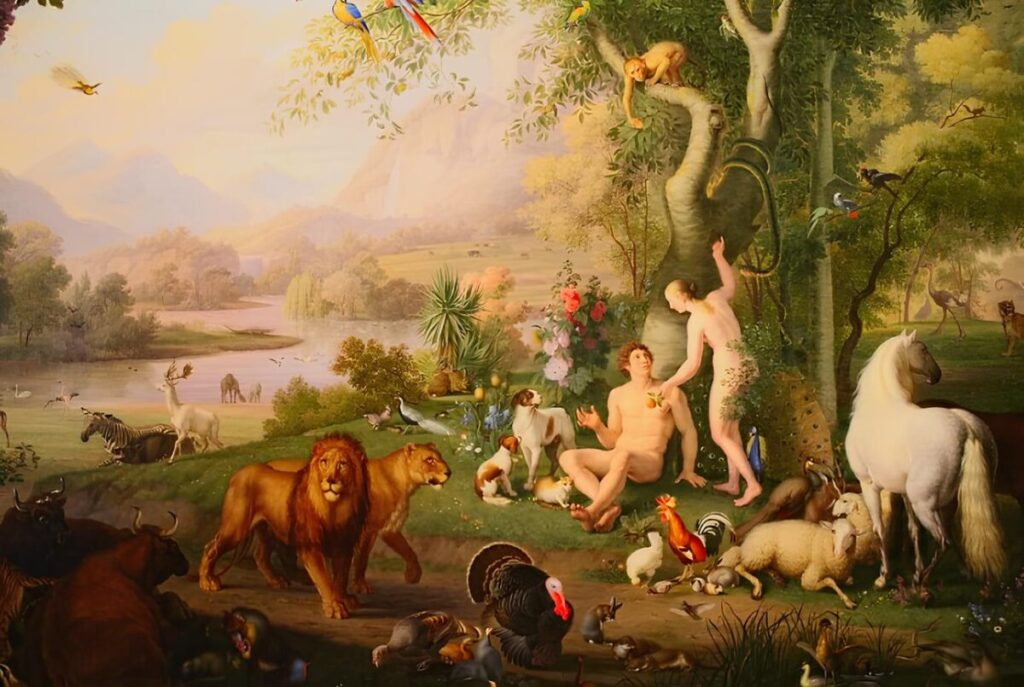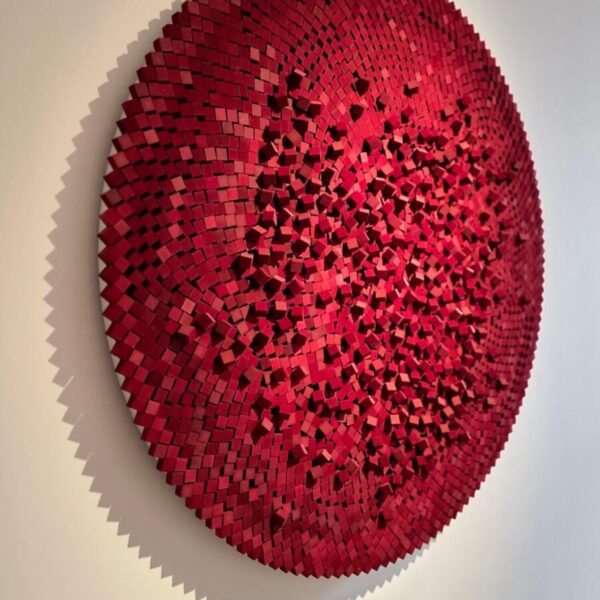“22-med consists of journalists, but also scientists, authors, and thinkers.” This article sheds light on this plurality through a singular figure: Driss Ksikes, writer, playwright, media and culture researcher, and associate dean for research and academic innovation at HEM, a private university in Morocco. Made an officer of arts and letters by the French Ministry of Culture in 2024, Ksikes embodies this intellectual transversality characteristic of 22-med.
This article, is a summary of 4 articles published in 22-med, available in the 11 languages used on the site and can be found HERE.
Based on four texts published on our site, we offer a critical, poetic, and deeply engaged perspective on art, language, memory, and transmission. Texts that, although not designed to dialogue with each other, together outline the contours of a thought in motion.
Giving Shape to Disaster
In Poem, an exhibition dedicated to the artist Hassan Darsi, Driss Ksikes highlights art as a political act. Darsi does not reconstruct reality; he reveals it through its wounds: ruins, disasters, censorship… The artist transforms chaos into plastic language. Ksikes here praises the persistence of an art that makes the invisible visible, in a Morocco marked by unspoken truths.
Hajj Edmond, an Irreducible Writer
This text accompanies the documentary film by director Simone Bitton about Edmond Amran El Maleh, an iconoclastic figure in Moroccan literature. Ksikes intertwines portrait and tribute, honoring a man of rupture, attached to his legacies but allergic to any labeling. El Maleh represents commitment, the refusal of boxes, a free language, and mixed thoughts. A writer who never ceases to overflow.
What Language Did Adam Speak?
With the reading of Abdelfattah Kilito's essay, Ksikes reopens an apparently naive question – “what language did Adam speak?” – to better examine today’s identity tensions. Behind the biblical enigma, it is about thinking multilingualism, translation, and floating roots. A call to undo linguistic certainties and embrace pluralities.
Erasure, or the Other Side of Memory
In this last text, Ksikes reflects on loss, on what crumbles in the margins of history. He questions the relationship to memory in cultural contexts marked by voluntary or imposed forgetting. Again, language and writing are means of resistance: to write is to hold onto what slips away. These texts signed by Driss Ksikes remind us that thinking about the world today is not limited to relaying current events, but also involves art, literature, memory, and language.

Cover photo: work by Hassan Darsi presented at the Poem exhibition, organized by the TGCC Foundation © DR
